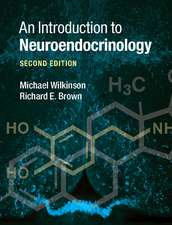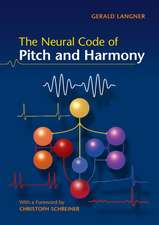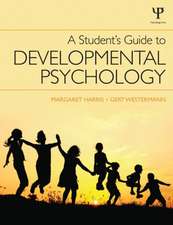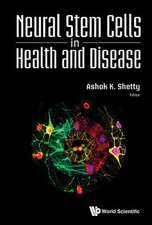The Oxford Handbook of Molecular Psychology: Oxford Library of Psychology
Autor Turhan Canlien Limba Engleză Hardback – 12 mar 2015
Din seria Oxford Library of Psychology
-
 Preț: 365.73 lei
Preț: 365.73 lei - 23%
 Preț: 930.94 lei
Preț: 930.94 lei - 34%
 Preț: 794.94 lei
Preț: 794.94 lei - 32%
 Preț: 778.53 lei
Preț: 778.53 lei - 14%
 Preț: 1008.17 lei
Preț: 1008.17 lei - 34%
 Preț: 1080.01 lei
Preț: 1080.01 lei - 23%
 Preț: 926.67 lei
Preț: 926.67 lei - 34%
 Preț: 1055.24 lei
Preț: 1055.24 lei - 14%
 Preț: 339.74 lei
Preț: 339.74 lei - 23%
 Preț: 1081.54 lei
Preț: 1081.54 lei - 33%
 Preț: 687.81 lei
Preț: 687.81 lei - 23%
 Preț: 1218.63 lei
Preț: 1218.63 lei - 12%
 Preț: 659.49 lei
Preț: 659.49 lei - 33%
 Preț: 728.14 lei
Preț: 728.14 lei - 14%
 Preț: 605.03 lei
Preț: 605.03 lei - 34%
 Preț: 1296.28 lei
Preț: 1296.28 lei - 23%
 Preț: 1057.75 lei
Preț: 1057.75 lei - 33%
 Preț: 686.58 lei
Preț: 686.58 lei - 23%
 Preț: 982.70 lei
Preț: 982.70 lei - 33%
 Preț: 829.25 lei
Preț: 829.25 lei - 27%
 Preț: 1112.16 lei
Preț: 1112.16 lei - 24%
 Preț: 366.79 lei
Preț: 366.79 lei - 27%
 Preț: 1218.13 lei
Preț: 1218.13 lei - 34%
 Preț: 1154.63 lei
Preț: 1154.63 lei - 33%
 Preț: 684.05 lei
Preț: 684.05 lei - 33%
 Preț: 731.24 lei
Preț: 731.24 lei - 33%
 Preț: 650.02 lei
Preț: 650.02 lei - 34%
 Preț: 796.97 lei
Preț: 796.97 lei - 33%
 Preț: 682.10 lei
Preț: 682.10 lei - 33%
 Preț: 827.89 lei
Preț: 827.89 lei - 26%
 Preț: 708.76 lei
Preț: 708.76 lei - 23%
 Preț: 1628.61 lei
Preț: 1628.61 lei - 20%
 Preț: 618.15 lei
Preț: 618.15 lei - 5%
 Preț: 1228.30 lei
Preț: 1228.30 lei - 15%
 Preț: 370.97 lei
Preț: 370.97 lei - 5%
 Preț: 1426.29 lei
Preț: 1426.29 lei - 23%
 Preț: 1389.15 lei
Preț: 1389.15 lei - 5%
 Preț: 1041.50 lei
Preț: 1041.50 lei - 27%
 Preț: 1112.44 lei
Preț: 1112.44 lei - 23%
 Preț: 374.66 lei
Preț: 374.66 lei - 23%
 Preț: 937.60 lei
Preț: 937.60 lei - 33%
 Preț: 1094.59 lei
Preț: 1094.59 lei - 23%
 Preț: 1101.73 lei
Preț: 1101.73 lei - 33%
 Preț: 799.90 lei
Preț: 799.90 lei - 34%
 Preț: 1033.24 lei
Preț: 1033.24 lei - 34%
 Preț: 1358.82 lei
Preț: 1358.82 lei - 33%
 Preț: 804.39 lei
Preț: 804.39 lei
Preț: 829.77 lei
Preț vechi: 1248.45 lei
-34% Nou
Puncte Express: 1245
Preț estimativ în valută:
158.83€ • 172.58$ • 133.50£
158.83€ • 172.58$ • 133.50£
Carte tipărită la comandă
Livrare economică 10-16 aprilie
Preluare comenzi: 021 569.72.76
Specificații
ISBN-13: 9780199753888
ISBN-10: 0199753881
Pagini: 480
Ilustrații: With illustrations
Dimensiuni: 178 x 254 x 38 mm
Greutate: 1.2 kg
Editura: Oxford University Press
Colecția OUP USA
Seria Oxford Library of Psychology
Locul publicării:New York, United States
ISBN-10: 0199753881
Pagini: 480
Ilustrații: With illustrations
Dimensiuni: 178 x 254 x 38 mm
Greutate: 1.2 kg
Editura: Oxford University Press
Colecția OUP USA
Seria Oxford Library of Psychology
Locul publicării:New York, United States
Notă biografică
Turhan Canli is an Associate Professor of Psychology and Radiology at Stony Brook University, where he is the founder and director of the SCAN (Social, Cognitive, and Affective Neuroscience) Center. He is a past director of the Graduate Program in Genetics. Dr. Canli's research focuses on individual differences in emotion, personality, and social behavior, and integrates tools from psychology, neuroscience, and molecular biology.















